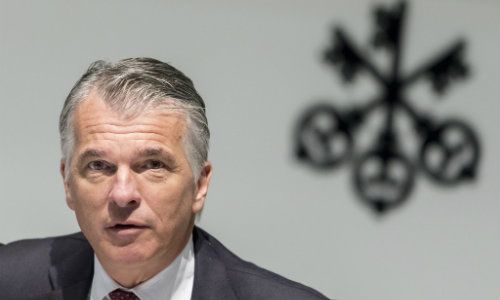Diethelm's pugnaciousness suits Ermotti perfectly: the CEO said two years ago he wouldn't permit UBS to settle if it saw its honor besmirched.
«We can only do a settlement when we believe the facts that lead to a settlement are accurate enough to entertain a resolution of the matter and in order to protect our reputation,» Ermotti said. He made the comments just weeks after France rolled out a procedure, called «convention judiciaire d'intérêt public», or CJIP, which was meant to allow the bank to reach a settlement with neither a trial nor an admission of wrong-doing.
Series of Mishaps
Against the backdrop of UBS' resolve, a series of mishaps prevented the bank from reaching a deal with officials. Meanwhile, rival HSBC in Switzerland hashed out a 300 million euro settlement with French officials 15 months ago, using the CJIP.
Ermotti and Diethelm were confronted with a new dilemma in France: a guilty plea would have served as a blueprint for other countries to extract costly payment from UBS for similar transgressions.
Pugnaciousness Spreads
Surprisingly, UBS' nervy approach seeped into other scandals still pending as well. In recent months, UBS slammed U.S. officials investigating sales of mortgage securities in the run-up to the financial crisis, saying their claims «are not supported by the facts or the law».
Analysts estimate the bank faces penalties of up to $2 billion to settle eventually. UBS is also on the hook in Hong Kong, where the finance regulator is seeking to stop the bank from sponsoring initial public offerings (UBS is appealing).
The setback in Paris raises the question of whether UBS' hard-line approach under legal boss Diethelm and CEO Ermotti represents a huge bet at the expense of the bank's shareholders. The bank faces years more of appeals processes in France alone. The Hong Kong and U.S. outcomes are presumably somewhat closer.
Image Dented
The duo face uncomfortable questions: we don't yet know whether Diethelm's strategy has backfired, but relief is years off. This means that Ermotti, in his seventh year as CEO, faces years more of litigation risks hanging over his plans for the bank.
The Paris verdict is also a personal knock for Ermotti, who vowed early in his tenure to restore UBS' battered image to its past luster. More recently, insiders have posited that the Ticino native, who turns 59 in May, is worried about his legacy: the CEO, they say, doesn't want to leave UBS until he can hand over a completely cleaned-up bank to his successor.
- << Back
- Page 2 of 2



































